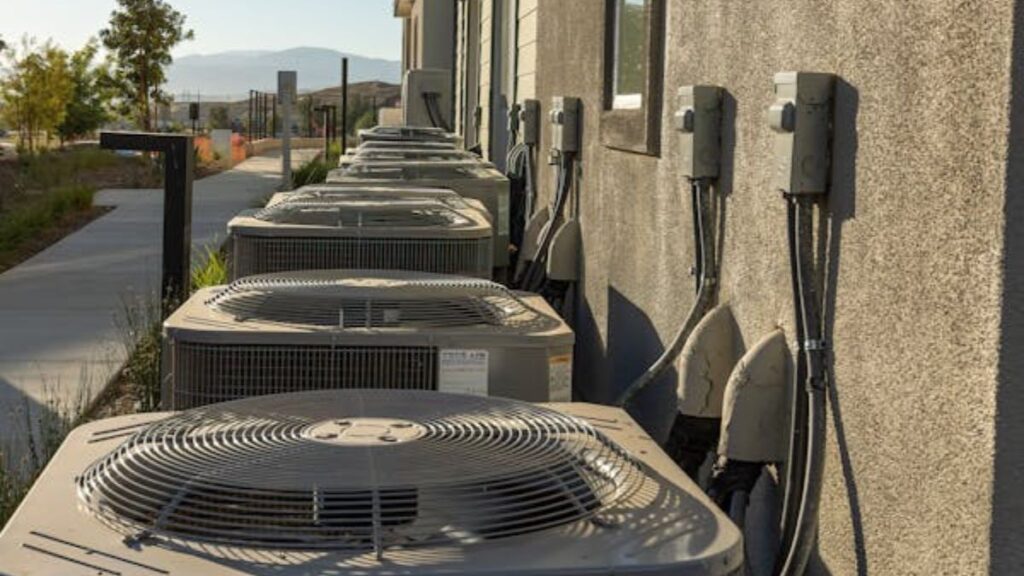Your HVAC system plays a critical role in maintaining a comfortable indoor environment, no matter the season. However, without proper care and smart strategies, your system might not perform at its best, leading to higher energy bills and inconsistent comfort levels. Maximizing your HVAC system’s efficiency doesn’t have to be complicated. With expert insights and a few practical hacks, you can ensure your system operates at peak performance while keeping your home comfortable year-round.
1. Schedule Regular Maintenance for Optimal Performance
One of the most effective ways to keep your HVAC system running efficiently is through regular maintenance. Professional inspections help identify potential issues before they escalate into costly repairs. Technicians clean components, check for wear and tear, and ensure all parts are functioning properly, improving your system’s lifespan and efficiency. If you’re overdue for a tune-up, go now and contact reputable HVAC services to schedule a professional inspection. Experienced technicians can optimize your system, replacing filters, calibrating thermostats, and addressing any airflow issues to ensure your HVAC unit operates smoothly and efficiently.
Homeowners should perform basic upkeep tasks such as changing air filters every one to three months. Clean filters improve airflow, enhance indoor air quality, and reduce the strain on your system.
2. Optimize Your Thermostat Settings
The way you use your thermostat has a significant impact on your HVAC system’s efficiency. Avoid setting the temperature too high or too low, as extreme settings force your system to work harder than necessary. Instead, aim for a comfortable yet energy-efficient range. In the summer, keep the thermostat around 78°F, and in the winter, set it to approximately 68°F.
Investing in a programmable or smart thermostat can make temperature control even more effective. These devices allow you to set schedules that adjust the temperature based on your routine. You can program the system to reduce heating or cooling when you’re not home and resume comfortable settings just before your return. This minimizes energy waste and ensures consistent comfort.
3. Seal and Insulate Your Home
Proper insulation and sealing play a crucial role in maintaining indoor temperatures. Air leaks around windows, doors, and ductwork can cause conditioned air to escape, making your HVAC system work harder to compensate. Identifying and sealing these leaks can significantly improve efficiency.
Start by checking for drafts and gaps in common problem areas, such as window frames, doorways, and attics. Use weather stripping or caulk to seal smaller gaps and consider adding insulation to attics, basements, and walls if needed. Insulated ductwork also prevents energy loss, ensuring air delivered by your HVAC system stays at the desired temperature.
4. Use Ceiling Fans to Complement Your HVAC System
Ceiling fans are an excellent way to support your HVAC system and maintain a comfortable indoor climate. In the summer, set your ceiling fans to rotate counterclockwise to create a cooling breeze that helps distribute cool air from your air conditioner. During winter, reverse the direction clockwise to push warm air down from the ceiling.
Using ceiling fans reduces the load on your HVAC system, allowing you to raise or lower the thermostat slightly without sacrificing comfort. This simple adjustment can lead to energy savings over time.
5. Ensure Unobstructed Airflow
Blocked vents and registers can hinder your HVAC system’s performance and lead to uneven heating or cooling. Regularly check that all vents and registers are free from obstructions such as furniture, rugs, or curtains. Dust and debris can also accumulate on vents, so make it a habit to clean them periodically.
For outdoor units, clear away leaves, dirt, and other debris that might restrict airflow. Maintain a clearance of at least two feet around the unit to ensure optimal operation. Proper airflow prevents your system from overworking and reduces the risk of breakdowns.
6. Reduce Heat Gain During Summer
Excess heat gain during summer can strain your air conditioner, making it work harder to maintain cool indoor temperatures. Simple adjustments can minimize heat gain and improve efficiency. Close blinds or curtains during the hottest parts of the day to block sunlight, and consider using reflective window films to reduce heat absorption.
Cooking indoors can also generate additional heat, so opt for outdoor grilling or use appliances like slow cookers to reduce heat buildup. These small changes can make a big difference in your HVAC system’s performance and your energy bills.
7. Consider Zoning Systems for Customized Comfort
Zoning systems divide your home into separate areas, each with its own thermostat. This setup allows you to customize the temperature in different zones based on usage and preferences. For example, you can keep bedrooms cooler at night while maintaining a warmer temperature in common areas during the day.
Zoning not only improves comfort but also enhances efficiency by directing heating or cooling only where it’s needed. If your home doesn’t already have a zoning system, consult a professional to discuss the feasibility and benefits of adding one.
Maximizing the efficiency and comfort of your HVAC system is all about proactive care and smart usage. From scheduling regular maintenance to optimizing thermostat settings and sealing air leaks, small adjustments can have a significant impact on your system’s performance. Partnering with trusted professionals ensures your HVAC system remains in peak condition, providing consistent comfort throughout the year. With these expert tips, you can enjoy a more efficient system, lower energy bills, and a comfortable home environment no matter the season.







